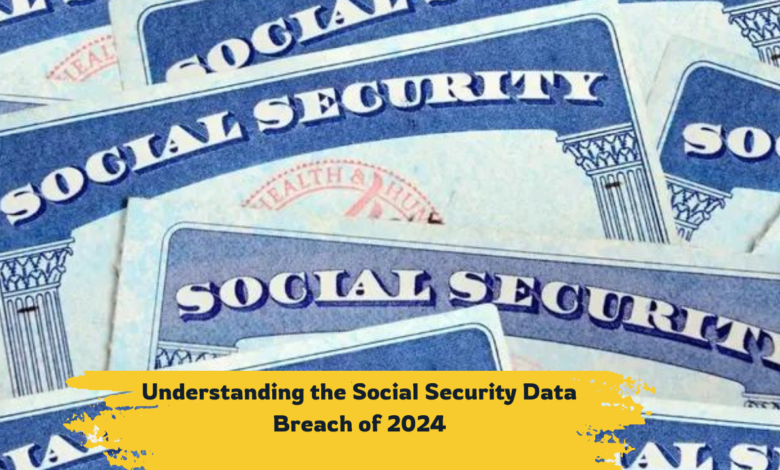Understanding the Social Security Data Breach of 2024

In an increasingly connected digital world, data breaches pose a significant threat to personal security and privacy. One of the most alarming incidents in recent history is the 2024 Social Security Data Breach, which has led to the exposure of sensitive information of millions of individuals. This article aims to provide a comprehensive overview of the breach, discuss the potential risks associated with such leaks, and offer practical steps to protect your information.
What Happened in the Social Security Data Breach?
The National Public Data Breach (NPDB) in 2024 was a significant cyber incident where hackers infiltrated systems storing sensitive data, including Social Security numbers (SSNs). The breach affected various sectors, including government agencies and private companies, leading to widespread concern about the misuse of personal information.
Hackers, often sophisticated and part of organized groups, targeted vulnerabilities within these systems, gaining unauthorized access to databases containing Social Security numbers, names, addresses, and other personally identifiable information. The breach’s scope highlighted the critical need for enhanced cybersecurity measures to protect sensitive data from malicious actors.
Why Is the Social Security Number (SSN) So Valuable?
The Social Security number is a critical piece of personal identification in the United States. It is used for various purposes, such as tracking individuals for Social Security benefits, identifying taxpayers, and verifying employment eligibility. Due to its widespread use, an SSN is a prime target for hackers looking to commit identity theft and financial fraud.
Identity thieves can use stolen SSNs to open fraudulent bank accounts, apply for credit cards, secure loans, and even file false tax returns. This makes the protection of your SSN crucial in preventing unauthorized activities and safeguarding your financial well-being.
Immediate Actions to Take After a Social Security Data Breach
If you suspect that your Social Security number has been compromised in a data breach, it’s essential to take immediate action to protect yourself. Here are some steps to consider:
1. Monitor Your Credit Reports
Regularly check your credit reports for any suspicious activities. You are entitled to a free credit report from each of the three major credit bureaus (Equifax, Experian, and TransUnion) annually. Look for unfamiliar accounts, inquiries, or any changes to your personal information.
2. Consider a Credit Freeze
A credit freeze restricts access to your credit report, making it difficult for identity thieves to open new accounts in your name. You can request a credit freeze from each of the major credit bureaus. Remember that you will need to lift the freeze temporarily when you apply for credit.
3. Place a Fraud Alert
Contact the major credit bureaus to place a fraud alert on your file. A fraud alert notifies creditors that you may be a victim of identity theft and requires them to verify your identity before opening any new accounts.
4. Report the Theft to the Authorities
File a report with the Federal Trade Commission (FTC) at IdentityTheft.gov. This official report can help you recover from identity theft and provide a paper trail of the breach.
5. Notify the Social Security Administration
If you believe your SSN has been used fraudulently, contact the Social Security Administration (SSA) to report the incident. They can provide additional guidance and assist in monitoring any unauthorized use of your Social Security number.
Long-Term Implications of Social Security Data Breaches
The consequences of a Social Security data breach can be far-reaching and long-lasting. Here are some potential implications to be aware of:
1. Identity Theft and Financial Fraud
Stolen SSNs can be used to commit various forms of identity theft and financial fraud. Thieves can open fraudulent accounts, apply for credit in your name, and even steal your tax refund.
2. Damage to Credit Score
Unauthorized activities using your SSN can negatively impact your credit score. Recovering from identity theft can be a lengthy process, requiring extensive efforts to clear your credit history.
3. Legal and Regulatory Challenges
Organizations responsible for safeguarding your data may face legal and regulatory repercussions due to negligence. Victims of data breaches may seek compensation through lawsuits or settlements.
4. Emotional and Psychological Impact
The stress and anxiety associated with identity theft can be overwhelming. Victims may experience a loss of trust and a sense of vulnerability, impacting their overall well-being.
Preventive Measures and Future Considerations
As data breaches become more prevalent, it is crucial to adopt preventive measures to protect your personal information. Here are some steps to enhance your security:
1. Use Strong and Unique Passwords
Ensure that your passwords are strong, unique, and regularly updated. Avoid using the same password across multiple accounts to minimize the risk of unauthorized access.
2. Enable Multi-Factor Authentication (MFA)
Multi-factor authentication adds an extra layer of security by requiring additional verification beyond just a password. Enable MFA wherever possible to protect your accounts.
3. Stay Informed About Data Breaches
Regularly monitor news and updates about data breaches. Awareness of the latest threats and vulnerabilities can help you take proactive measures to safeguard your information.
4. Educate Yourself and Your Family
Educate yourself and your family members about the importance of data security. Teach them to recognize phishing attempts, avoid sharing sensitive information online, and report any suspicious activities.
In conclusion, the 2024 Social Security data breach serves as a stark reminder of the importance of robust cybersecurity measures and vigilant personal data management. By understanding the risks and taking proactive steps, individuals can protect their identities and minimize the potential impact of such breaches.




